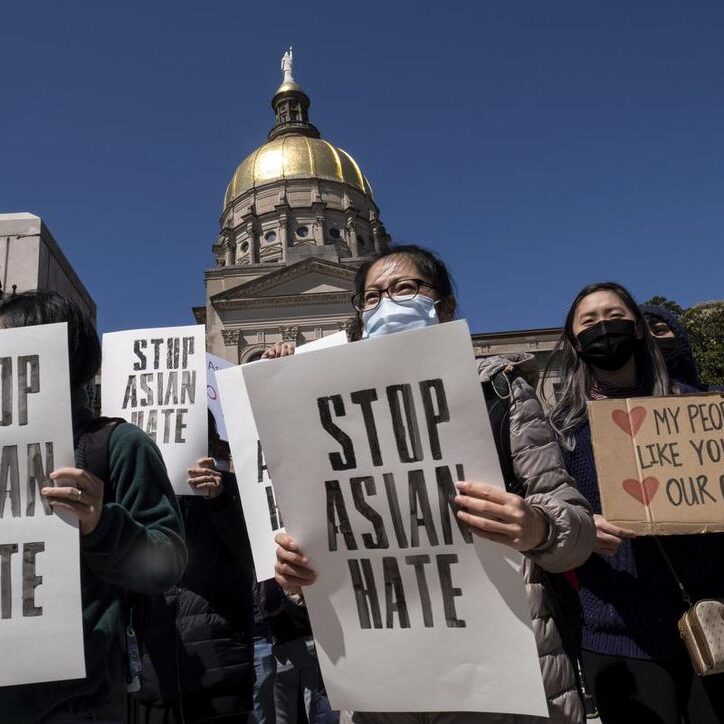We all must work to end the rise of anti-Asian hate
“Are you their nanny?” A simple question from another mom on a playground in Toronto — Canada’s most diverse city.
At the time — and the many other times this happened when my biracial children were young — I didn’t think of it as a racism, and I wouldn’t have called the person who asked it a racist. Nannies play a vital role in many families. What bothered me was an assumption made based on the fact that I am of Asian decent.
I was made to feel “othered” and, decades later, as we see an alarming rise in anti-Asian hate and racism, I’m looking at these interactions from my past differently.
This is how racism starts: “othering,” or making assumptions based on how someone looks or their accent. It grows because of fear and hate, and ultimately becomes more overt forms of racism.
It took me a week to write this article. Like many people of Asian descent, I needed time to process, feel frustrated and angry, and most importantly to identify the steps and actions I was going to take — and encourage others to take with me.
For others that have had a similar experience to my own, to other people from Asian communities that have experienced much worse, my message is simple. You are seen, heard and not alone. We can and need to do better.
Through COVID-19, a time of fear, confusion and mistrust for many, we have seen a rise in anti-Asian racism. Like the media and law enforcement’s refusal to call what happened in Atlanta as an act of white supremacy or homegrown terrorism. Or the inability to include sex work or the fetishization of Asian women as part of the story. These are all examples of dehumanizing the Asian victims, justifying the actions of the perpetrator, and not addressing the systemic issues of racism, hate and misogyny.
Here in Canada, we all too often look at acts of violence in the U.S. — like the killing of George Floyd or the shootings in Atlanta — with the lens of “well, that’s not us.” This attitude is both dangerous and false. In a recent report by Project 1907 — a self-described community-based reporting tool that tracks incidents of racism — Canada has a higher number of reported cases of anti-Asian racism than our neighbours to the south, with the largest number of reports per person in all of North America coming from British Columbia.
In fact, according to a 2021 report by the Vancouver Police Board, hate crimes against Asians in Vancouver rose by 717 per cent in the span of one year. And in Toronto, 30.5 per cent of “visible minority” residents reported increasing discrimination or harassment in their neighbourhood based on race, ethnicity or skin colour, according to a 2020 report by the Toronto Foundation.
Now is the time to amplify and elevate those who feel they have been silenced.
It is not up to one oppressed group to rally around another. It is about all of us, collectively as a civil society, recognizing what is broken and working together to fix it. As organizations and as individuals we can, should and must do more.
That is why CivicAction is continuing to use our networks and channels to create safe space, have uncomfortable but necessary conversations, and elevate voices through programs like our Real Talk series and CivicMatch program.
Check in with your friends who are Black, Indigenous and people of colour, and particularly your friends and colleagues who are of South-East Asian descent. Speak out against and report any hate crimes you see. These are a criminal offence and can be reported anonymously to the police. Use resources — like Ryerson’s Responding to Hate Toolkit — to educate yourself on anti-racism, sexism, misogyny and intersectionality.
We must look to find ways to include, rather than exclude. To build up, rather than break down. To build communities where everyone’s unique qualities are valued, and where — as a city region of so many newcomers — more of us feel we belong.Leslie Woo is CEO of CivicAction, a non-profit organization that aims to boost civic engagement and build better, more inclusive cities. Woo has over 25 years of experience building sustainable communities and shaping urban development in the Greater Toronto Area.


